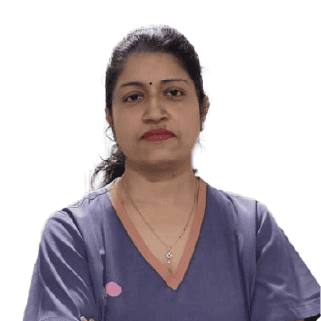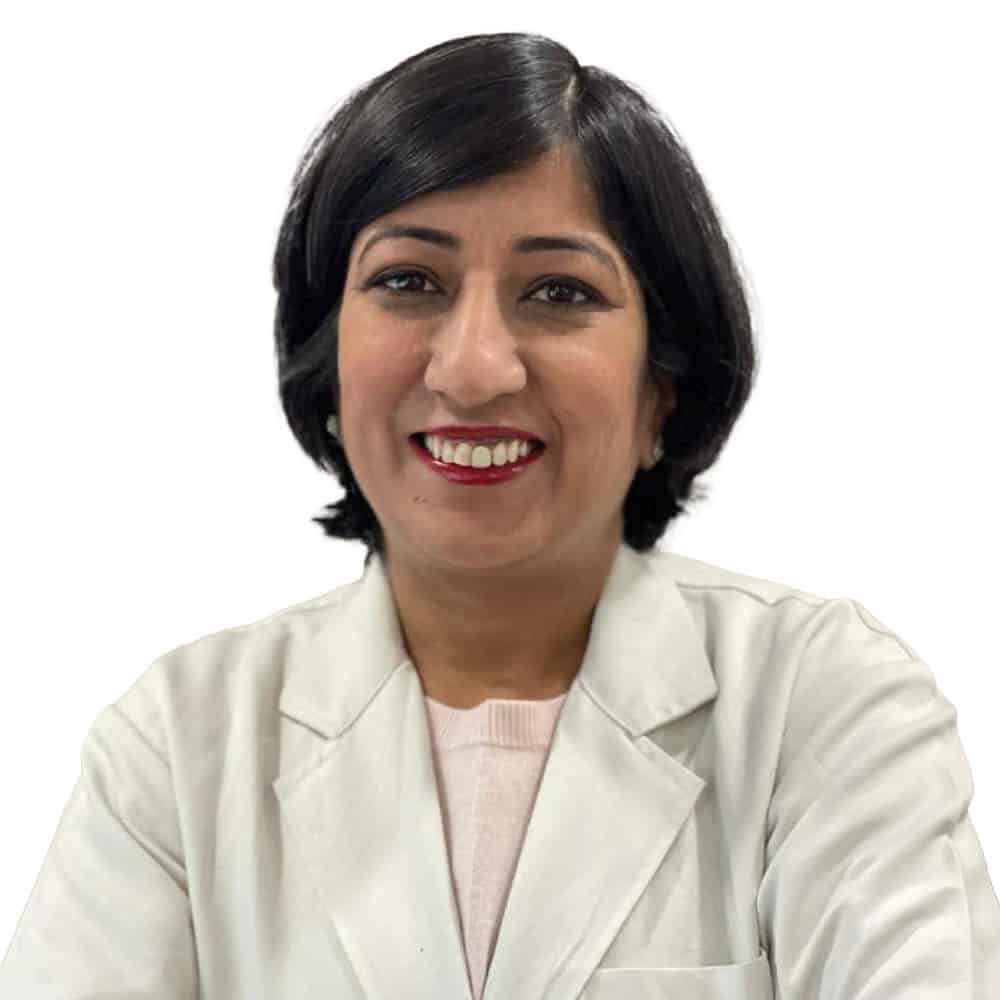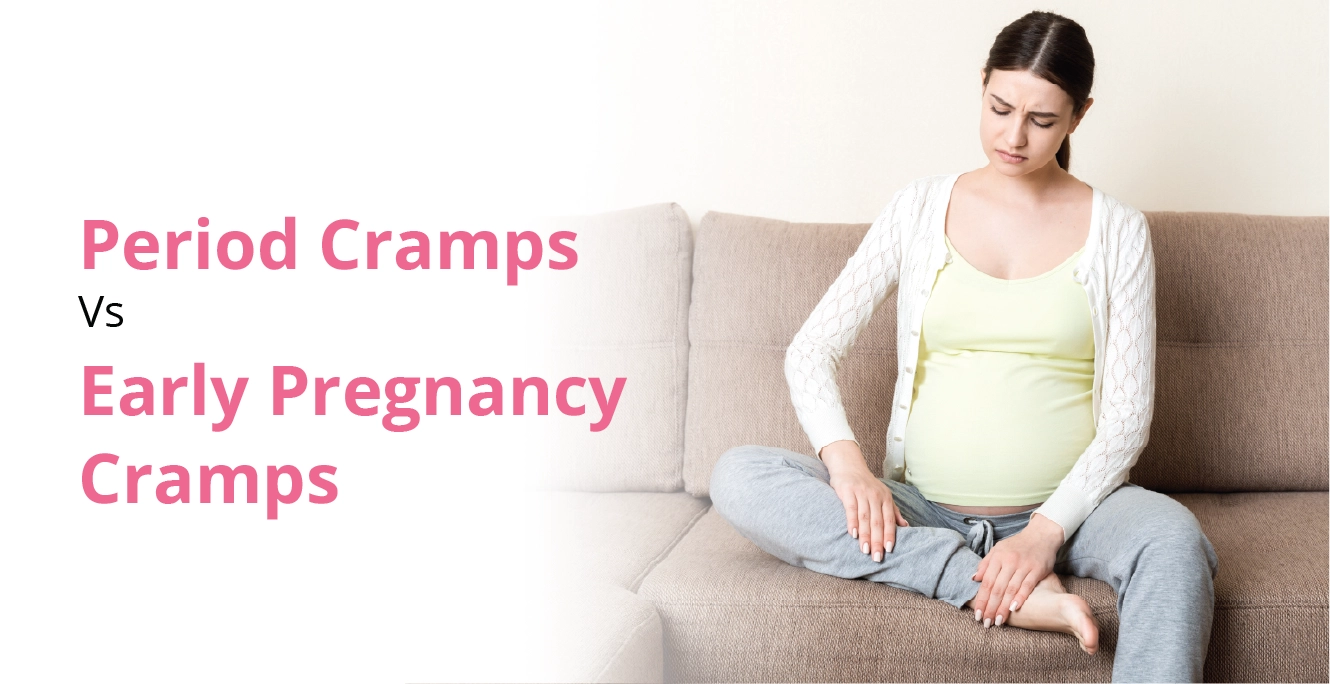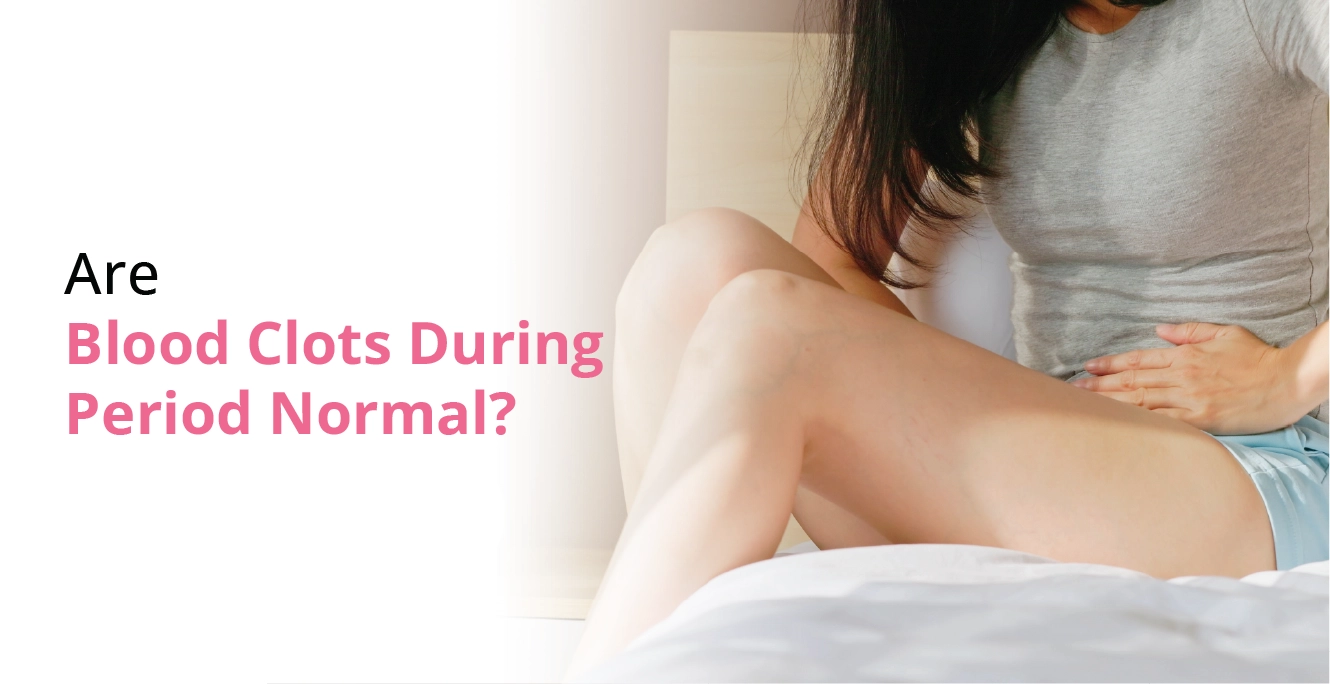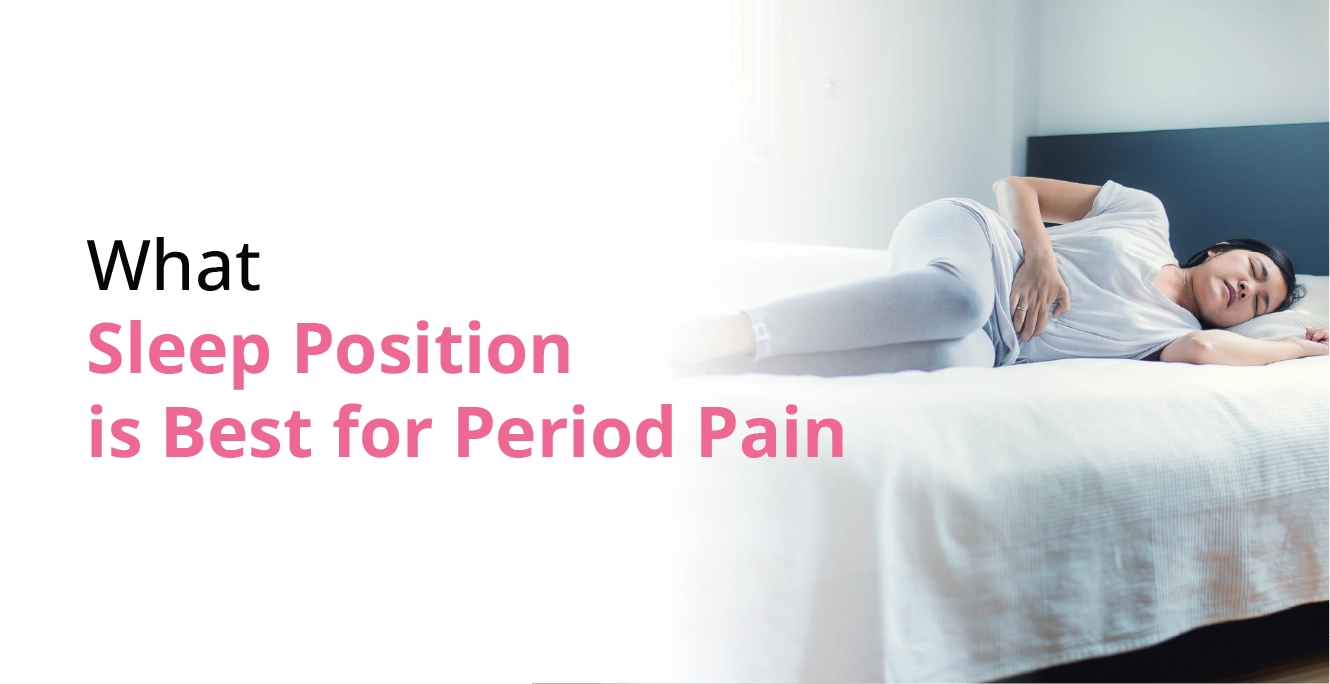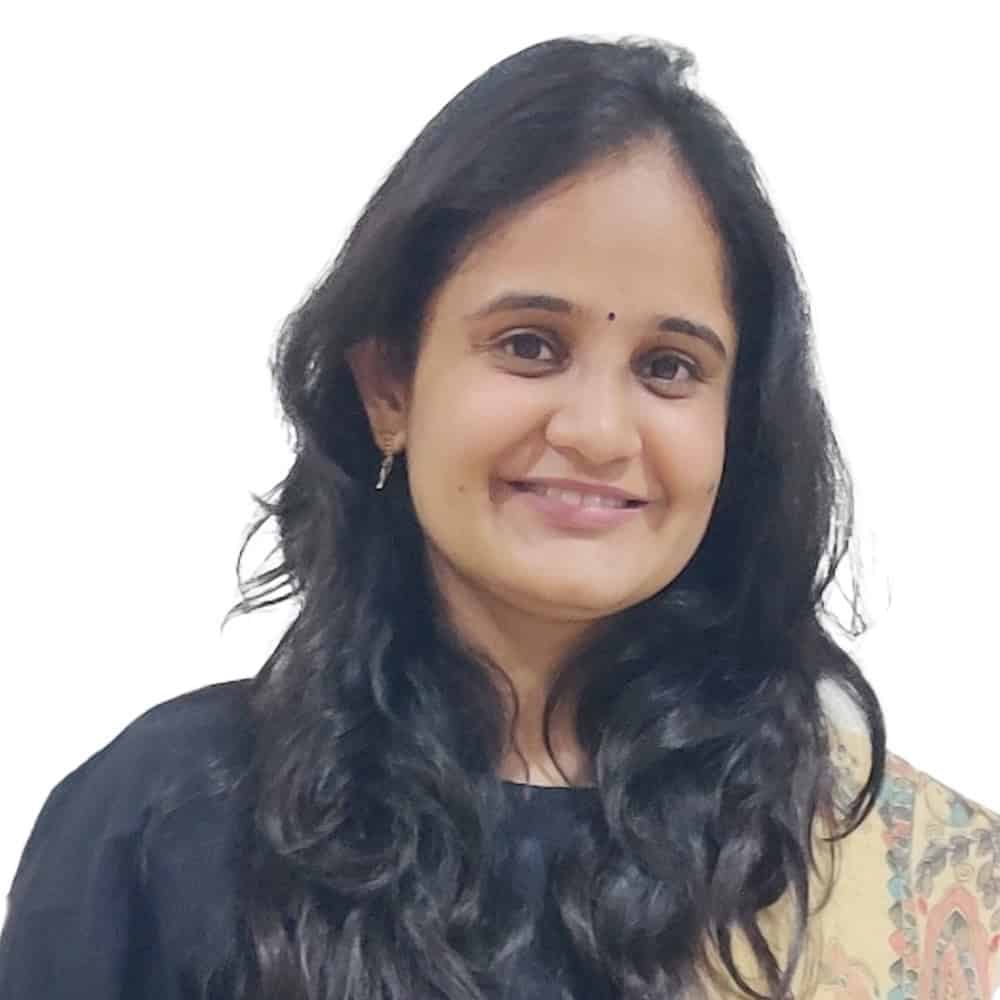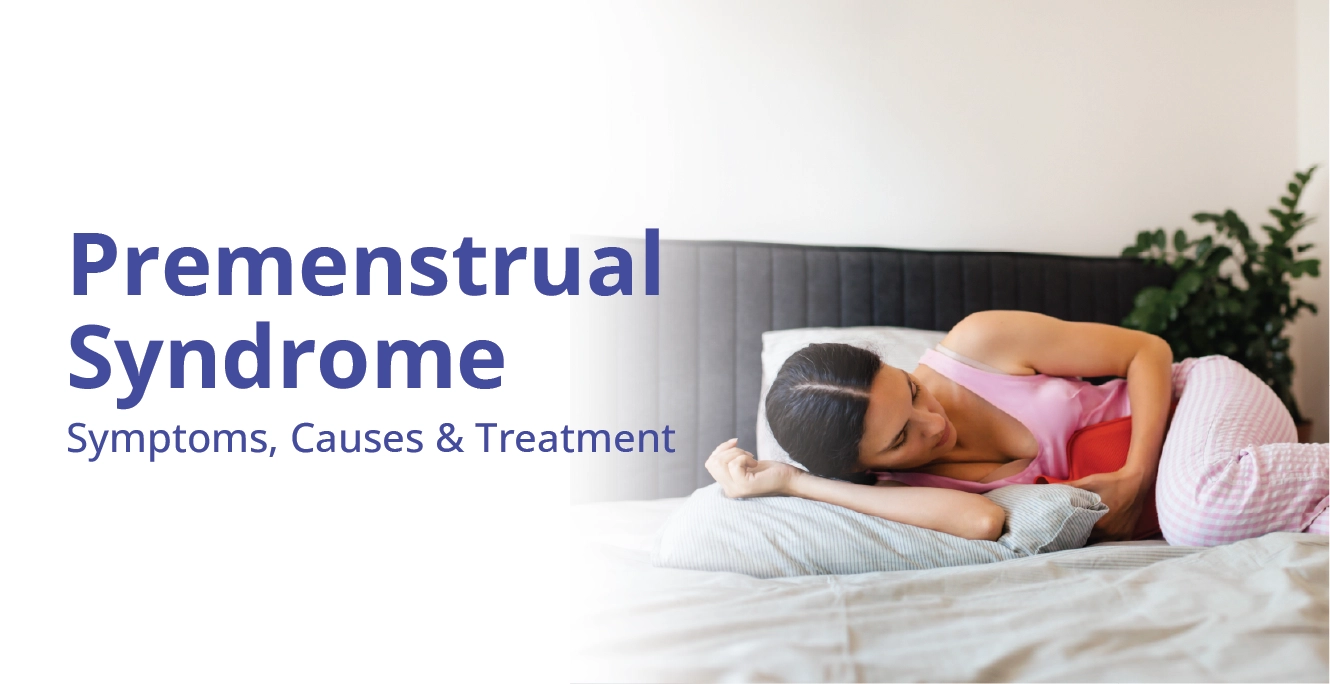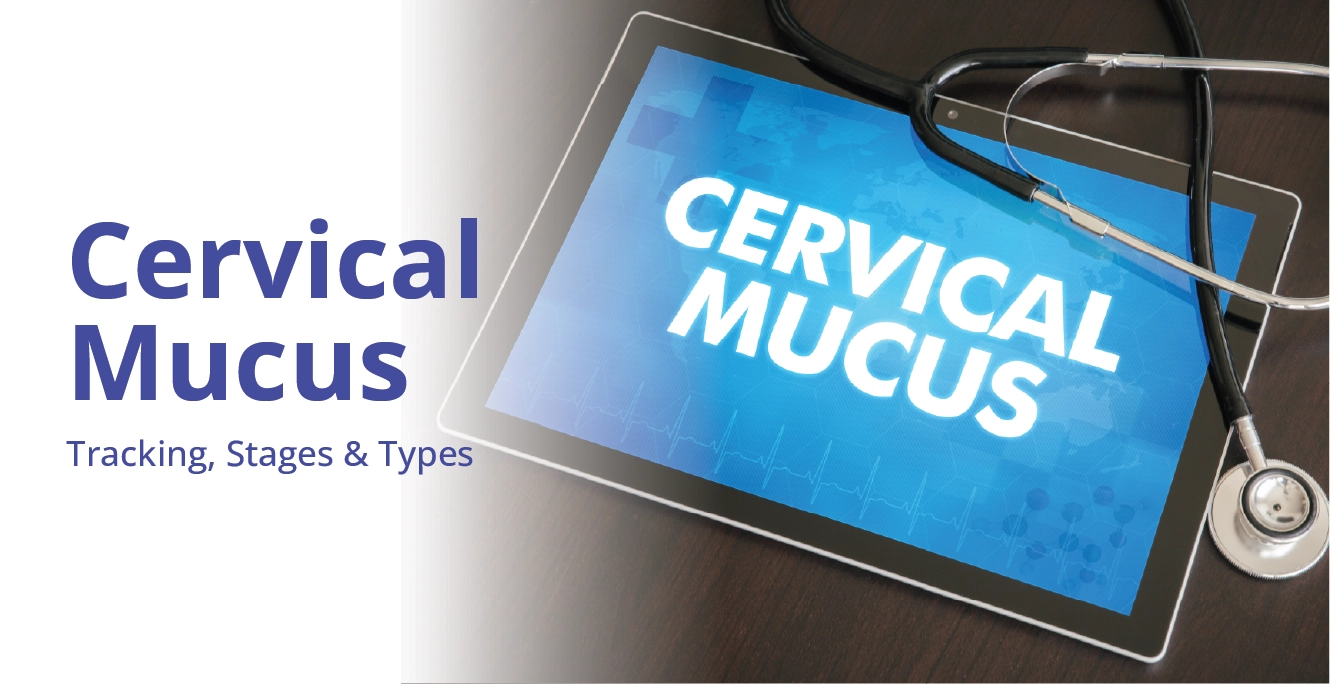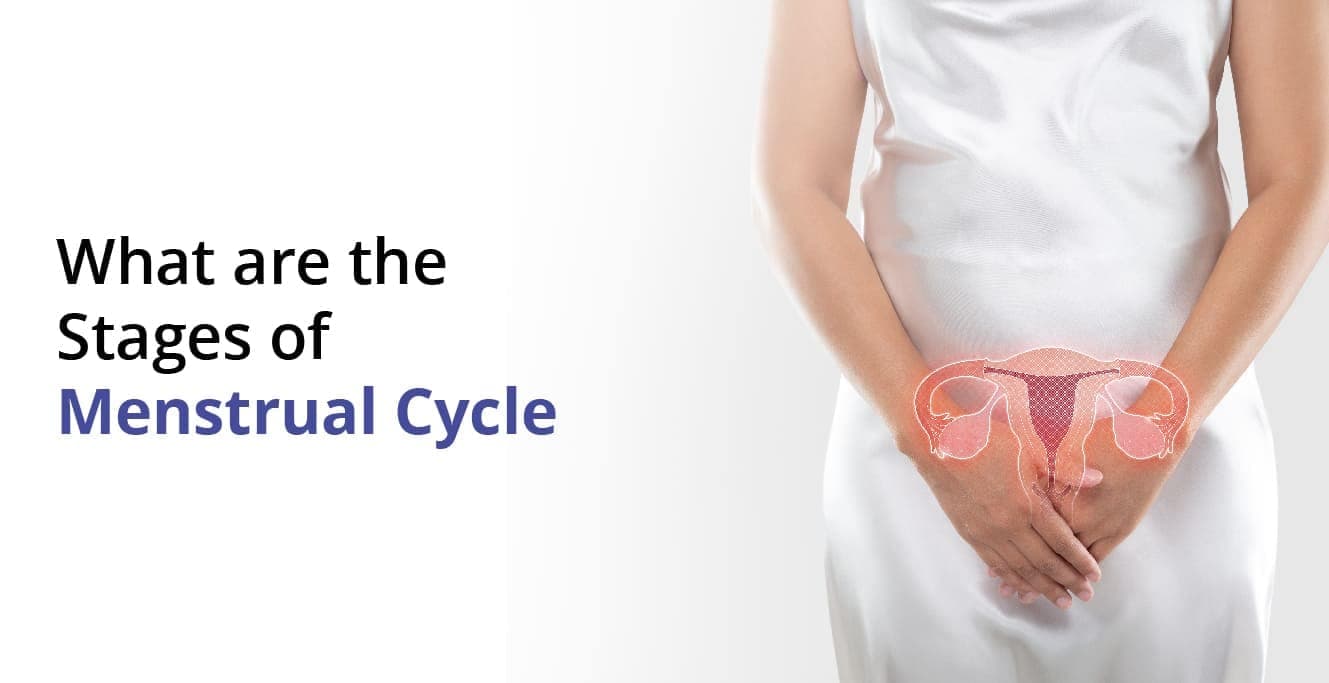
What are the Stages of the Menstrual Cycle?
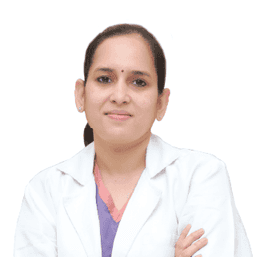
Table of Contents
- What is a Menstrual Cycle?
- Common Menstrual Problems
- What are the Stages of the Menstrual Cycle?
- How Many Days a Normal Menstrual Cycle Lasts?
- At What Age Do Periods Begin?
- Symptoms of Getting Periods
- What Does Irregular Periods Mean? And How It Affects Fertility
- How to Track My Periods? And the Importance of Tracking Your Periods
- Role of Hormones in Menstruation
- Effects of Hormonal Imbalance
- Final Thoughts
- Conclusion
- FAQs:
From being just a monthly discomfort, your menstrual cycle is a finely tuned process driven by hormones that affect your body and emotions. Mood swings, cravings and sudden fluctuations in energy levels at certain times of the month—have you ever wondered why all this happens? It can be linked to the stages of your menstrual cycle. Confused? Let’s understand the four stages of the menstrual cycle in detail and uncover the answers you need to know.
What is a Menstrual Cycle?
The menstrual cycle is a series of natural changes in hormone production and the structures of the uterus and ovaries of the female reproductive system that make pregnancy possible. The ovarian cycle controls the production and release of eggs and the cyclic release of estrogen and progesterone.
Common Menstrual Problems
Every woman has a unique menstrual cycle and here are some common issues they may face during their periods.
- Irregular periods: When cycles are shorter than 21 days or longer than 35 days, it may suggest hormonal imbalance or conditions like PCOS. Understanding the causes of irregular periods is essential for managing your reproductive health.
- Painful periods: Severe cramps can be draining and may indicate concerns like endometriosis which can also impact fertility.
- Heavy bleeding: Excessive bleeding lasting more than seven days may signal hormonal imbalance or uterine conditions.
- Missed periods: Skipping periods for three or more consecutive months might be linked to stress, thyroid issues or approaching menopause.
What are the Stages of the Menstrual Cycle?
The menstrual cycle is a cycle that a female’s body goes through every month. This menstrual cycle consists of several stages or phases each month. It eliminates the possibility of one becoming pregnant. Hormone fluctuations are in charge of the body’s shift from one stage to the next. The count of the menstruation cycle is considered from the 1st day of the menstruation, i.e. when the blood starts to flow from the vagina. As per an average woman, the cycle period is 28 days. The entire menstruation cycle can be divided into four distinct phases.
- Menstrual Phase (From day 1 to 5)
- Follicular Phase (From day 1 to 13)
- Ovulation Phase (Day 14)
- Luteal Phase (from day 15 to 28)
Menstrual Phase (from day 1 to 5)
The menstrual phase is the 1st stage of the menstrual cycle, also the day when the period starts and ends till the 5th day of the cycle. When we get our first periods, the first thing that comes to our mind is what exactly goes on in our body or reproductive system that we start releasing blood out of our vagina. In simple terms, this blood is nothing but the shedding of the thickened lining of the uterus, which, when conception does not happen, is not needed, and so it starts to shed through the vagina. During this period, the blood released from the body is a combination of menstruation fluid, mucus, and tissues from the uterus.
Symptoms
Following are some of the most common signs & symptoms one might notice in the 1st phase.
- Abdominal Cramps
- Bloating
- Headaches
- Mood swings
- Tender breasts
- Irritability
- Fatigue/tiredness
- Pain in the lower back
Follicular Phase (From day 1 to 13)
The follicular phase, like the menstrual phase, starts with the first phase and ends on the 13th day of the cycle. The process begins when the hypothalamus, a brain area, sends a signal to the pituitary gland to release follicle-stimulating hormone (FSH). This hormone causes your ovaries to generate 5 to 20 follicles, which are tiny sacs. An immature egg is found in each follicle but only the healthiest egg will mature in the end. The remaining follicles will be absorbed back into your body. The follicular period lasts about 13-16 days on average. Below are some of the signs & symptoms of the follicular phase.
Symptoms
Below are some of the signs that can help determine that the second phase has begun.
- Higher energy levels
- Fresh and glowing skin
- Increase in sex drive
Ovulation Phase (Day 14)
The ovulation phase is when you are the most fertile. Anyone who wants to get pregnant should try to do so during this ovulation period. The pituitary gland secretes a hormone on the 14th day of the cycle that induces the ovary to release the matured egg cell. Waves of small, hair-like projections sweep the liberated egg cell into the fallopian tube and towards the uterus. The average egg has a lifespan of about 24 hours. It will die unless it comes into contact with sperm during this period.
Symptoms
Below are some of the symptoms of the ovulation phase; these symptoms can help determine when you can plan your pregnancy.
- Cervical mucus changes
- Heightened senses
- Breast soreness or tenderness
- Mild pelvic or lower abdominal pain
- Vaginal bleeding
- Sharp or dull cramp
- Discharge
- Nausea
- Light spotting
- Cervix changes
- Libido changes
- Changes in basal body temperature
Luteal Phase (from day 15 to 28)
Your body begins to prepare for a new cycle during this time. As your hormone production begins, your energy levels may drop, bringing with them menstruation symptoms. The corpus luteum develops after the follicle discharges its egg. Hormones, primarily progesterone and some estrogen, are released by this structure. The corpus luteum is a perfectly natural cyst that develops on the ovary every month in women of reproductive age. This cyst is made up of cells in your ovaries that form at the end of your menstrual cycle.
Symptoms
During this phase, if you don’t get pregnant, below are some of the symptoms you may experience. These include:
- Bloating
- Breast swelling, pain, or tenderness
- Mood changes
- Headache
- Weight gain
- Changes in sexual desire
- Food cravings
- Trouble sleeping
Must check about the ovulation calculator.
How Many Days a Normal Menstrual Cycle Lasts?
A healthy menstrual cycle usually lasts 28 days, though cycles ranging between 21 and 35 days are also normal for adults. However, persistent deviations from this range could indicate hormonal issues or potential female infertility. If you are trying to conceive and face irregularities, exploring female infertility causes can offer valuable insights.
At What Age Do Periods Begin?
Most people start their periods between 10 and 16 years of age. This milestone marks the beginning of reproductive capability, although it can vary due to genetics, diet, or health conditions.
Symptoms of Getting Periods
As your body prepares for menstruation, you might notice symptoms such as:
- Lower abdominal cramps
- Breast tenderness
- Bloating and digestive changes
- Mood swings or irritability
- Acne breakouts
For some, these symptoms can mimic early pregnancy signs, especially during the luteal phase of the menstrual cycle. If you’re navigating fertility concerns, treatments like IVF can provide a pathway to parenthood.
What Does Irregular Periods Mean? And How It Affects Fertility
Irregular periods refer to unpredictable cycle lengths, missed cycles, or abnormal bleeding patterns. This can disrupt ovulation, making pregnancy more challenging. Conditions like PCOS or endometriosis are common culprits affecting regular cycles and increasing the risk of recurrent miscarriage.
How to Track My Periods? And the Importance of Tracking Your Periods
Tracking your menstrual cycle helps identify patterns and detect irregularities. This can be done using period-tracking apps or a simple calendar. Monitoring your cycle can:
- Pinpoint your fertile window, improving your chances of conception.
- Detect early signs of hormonal imbalances.
- Aid in diagnosing reproductive conditions like endometriosis.
Consistent tracking is especially useful if you’re planning for pregnancy or exploring fertility treatments such as IVF.
Role of Hormones in Menstruation
The menstrual cycle is regulated by key hormones:
- Oestrogen—Thickens the uterine lining during the follicular phase.
- Progesterone—Prepares the uterus for a potential pregnancy during the luteal phase.
- Luteinising Hormone (LH)—Triggers ovulation.
- Follicle-Stimulating Hormone (FSH)—Stimulates follicle development.
An imbalance in these hormones can cause irregular cycles, heavy bleeding, or changes in vaginal discharge, which may indicate underlying health issues.
Effects of Hormonal Imbalance
Hormonal imbalances can affect menstrual health and overall well-being. Common effects include:
- Irregular or absent periods
- Intense premenstrual symptoms (PMS)
- Fertility challenges
- Mood fluctuations and fatigue
If left unaddressed, hormonal disruptions may affect long-term reproductive health. Seeking guidance from a specialist is essential for proper diagnosis and treatment.
Final Thoughts
Your body communicates with you—are you listening?
Your menstrual cycle is not only about those few days of bleeding. It is an indicator of your reproductive and hormonal health. Staying informed about the different stages of menstruation and recognising any abnormalities helps you keep track of your health.
If you experience persistent issues like irregular periods, severe cramps or hormonal imbalances, visiting a fertility specialist can provide clarity and answers. Do not hesitate to consult our experienced fertility experts at Birla Fertility & IVF, who will help you find the root cause of your problems and guide you with the best solutions.
Must check about the ovulation calculator.
Conclusion
It is very important to understand your body, as it can help you to better respond to and control your hormones. Not every woman is aware of her body and how her reproductive system is responding, and that is why it is important to visit a healthcare specialist to get all necessary tests done to better understand the body.
FAQs:
How Many Days After Your Period Can You Get Pregnant?
As per research, 6 days after the period, the chances might increase of getting pregnant because in that phase you enter the ovulation period, i.e. the most fertile time of your cycle.
How Many Days After Your Period Can You Not Get Pregnant?
There is no time that is the safe time when it comes to having sex without contraception pills. Your chances might be low, but there isn’t any period during a month that can be declared as safe for not getting pregnant.
How Do I Know When I’m Ovulating?
There are certain signs that can help determine if you are ovulating. The basal body temperature falls slightly, then rises up again, the cervix softens and opens up, the cervical mucus becomes thinner and clearer, and you might feel slight discomfort or mild cramps in the lower abdomen.
Our Fertility Specialists
Related Blogs
To know more
Birla Fertility & IVF aims at transforming the future of fertility globally, through outstanding clinical outcomes, research, innovation and compassionate care.
Had an IVF Failure?
Talk to our fertility experts

 Our Centers
Our Centers






